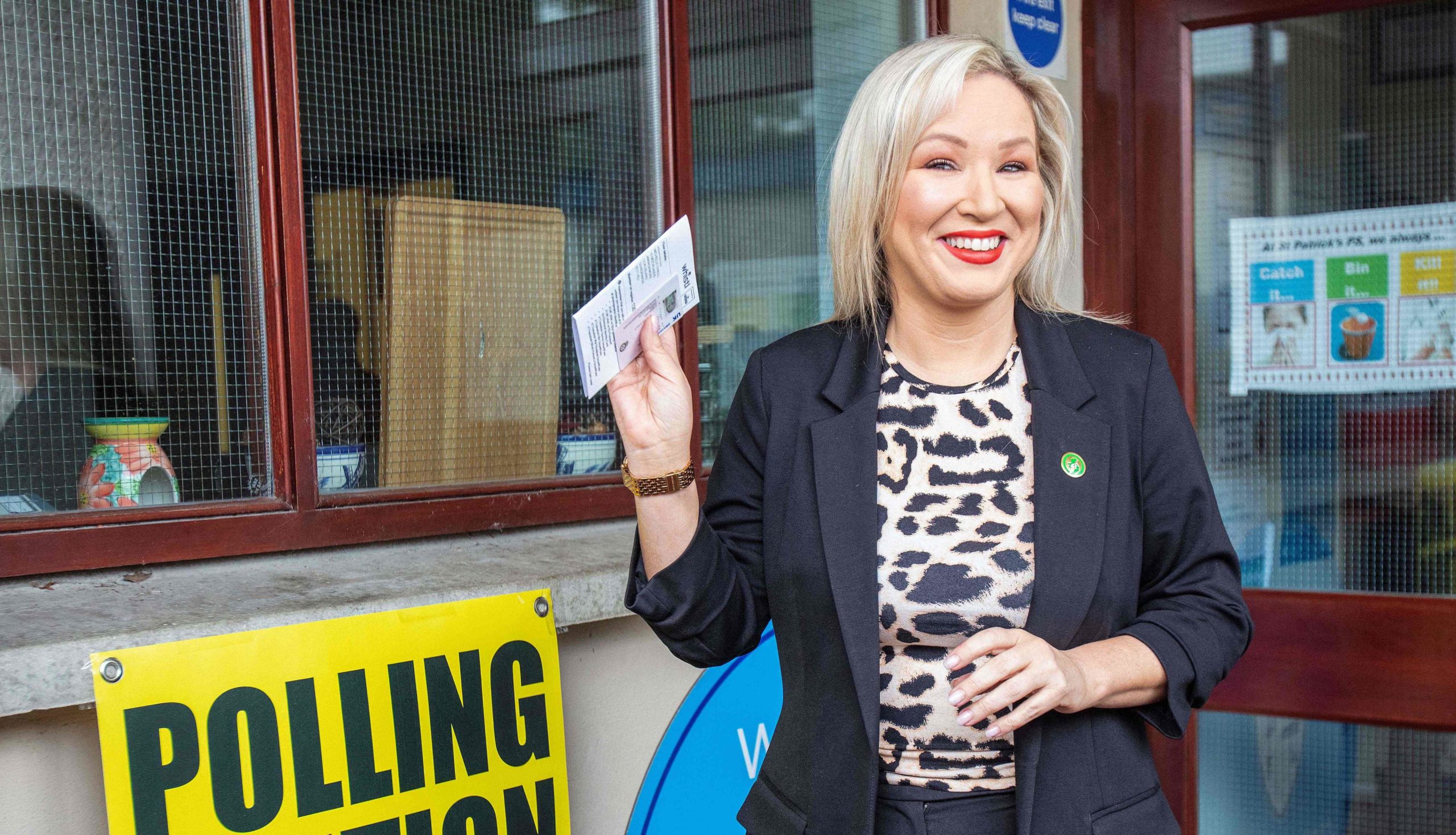We won’t know until later today the results of the elections in Northern Ireland. But if they’re anything like the final polls, Brandon Lewis likely faces a busy few weeks just keeping Stormont on its feet.
The Democratic Unionists, who have been the dominant pro-UK party since the mid-noughties, seem to have failed to close the gap with Sinn Fein, meaning that for the first time the republicans will be the largest party in the Assembly.
In fact, the DUP seem to be locked in a desperate battle for second place with the Alliance Party, the Province’s middle-of-the-road liberal option.
Should these forecasts be borne out, it will be a seismic shock to ‘capital-U Unionism’, because for the first time they will not be nominating the ‘First Minister’.
In reality, the First Minister and Deputy First Minister are co-equal positions. But the fiction implied by the current titles is symbolically important — which is why the Unionists insisted on it in the first place.
Getting overtaken by the Alliance would be a second major blow, for it would mean that not only would the largest party at Stormont be pro-unification with Ireland, but the second-largest would be officially neutral on the whole question.
The strange thing is, the Unionists will certainly be the second-largest group in the Assembly — and they may even be the largest one. But the pro-UK vote is split between three major parties, whereas the nationalist vote is only split between two.
Under the original terms of the Belfast Agreement, it was the largest group which nominated the First Minister. It was the DUP themselves who, in collusion with Sinn Fein, prevailed on New Labour to change the rules in 2007.
Now that right goes to the largest party. This had the effect of encouraging voters on both sides to cluster behind the biggest party on each side (not coincidentally, the DUP and Sinn Fein).
Since overtaking the Ulster Unionists and changing the rules, the DUP have profited greatly from this fact, focusing every election on rallying the pro-UK electorate behind them to keep Sinn Fein out.
But that has come at a great cost to unionism more widely, as smaller parties have been squeezed and voters, tiring of the DUP’s limited offer, have switched to the Alliance or stayed at home.
There may yet not be a new executive: Sir Jeffrey Donaldson led his party out of the last one, and the Protocol may provide sufficient pretext for his MLAs to refuse to serve under Sinn Fein’s (entirely titular) leadership.
For their part, the republicans probably won’t want to rock the boat too much so as not to spook voters in the Republic: the party’s long-term goal has always been to hold office on both sides of the border.
But whether they agree to serve or not, the dethroning of the DUP must lead to a long overdue reckoning for Northern Ireland’s unionist leaders. They have been failing their voters, and their cause, for far too long.











Join the discussion
Join like minded readers that support our journalism by becoming a paid subscriber
To join the discussion in the comments, become a paid subscriber.
Join like minded readers that support our journalism, read unlimited articles and enjoy other subscriber-only benefits.
Subscribe